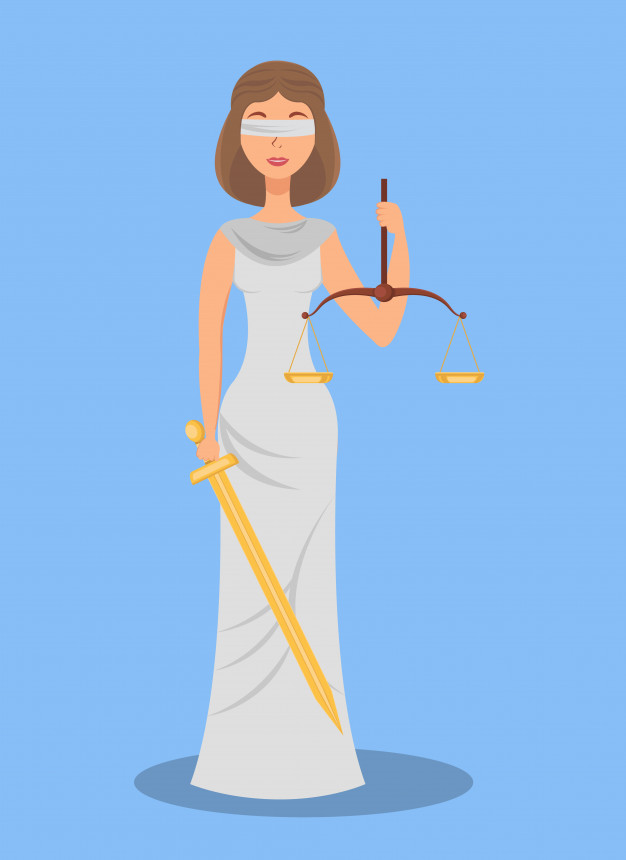Safia: I’m ready. In fact, I can’t wait.
Oni: What for? Home? We ARE on our way.
Safia: For a Uniform Civil Code, Oni! India’s waiting and ready.
Oni: I think all right-thinking people in this country are ready. But it should be the endeavour of those who are going to enact that Uniform Civil Code to try and take everybody with consent.
Safia: And if there are some vested interests who’re going to resist it?
Oni: Well, they must be taken along. But if they’re going to be recalcitrant, they must be left behind!
Safia: Absolutely! Let them be left aside. We want to move on as a country! Let them be left aside, I couldn’t care less.
Oni: True, you’re never going to get an absolute consensus in this country. And it’s part of the constitution.
Safia: Well, not exactly. It’s part of the Directive Principles which clearly mandate that ‘the state shall endeavour to secure to all its citizens a Uniform Civil Code throughout the territory of India.’ But yes, according to the same constitution, it has to be taken as a principle of governance.
Oni: Actually, even the Supreme Court has requested the government to come forward and bring in the UCC. So, really, why do we have to wait much longer? It’s true it isn’t justiciable. At the moment, nobody can go to court and say, “I have a right!” but the fact is that it was discussed in great detail in the Constituent Assembly and it was put into the Directive Principles to be implemented over time. And 70 years, is an alarmingly long time.
Safia: The anti-UCC club says they won’t have one point of view steamrolled on a multi-religious, multi-cultural, multi-lingual, diverse nation like ours.
Oni: Madam, the object behind Article 44 is to effect an integration of India by bringing all communities on a common platform on matters which are at present, governed by diverse personal laws but which do not form the essence of any religion. For instance, issues such as divorce or maintenance for a divorced wife, et cetera.
Safia: And just as the Supreme Court regrets that Article 44 has so long remained a dead letter, so do we.
Oni: They have repeatedly recommended early legislation to implement it. If Parliament steps in, this will be a major leap forward to help the cause of national integration by removing contradictions based on ideologies. One nation; One law!
Safia: Couldn’t have said it better. Besides, there isn’t and shouldn’t be a necessary connection between religion and personal law in any civilised society.
Oni: If enacted, let me tell you that with time, we will see that every religion based personal law that has been going around in this country, marginalizing women because of religion, will be thrown into the dustbin!
Safia: I think we need to tell anyone who thinks it isn’t possible, that IT IS. For multiple reasons. Number One. It’s a directive principle. Which is part of the constitution. And the constitution is sacrosanct. It is possible because not once or twice but on four previous occasions, the Apex Court has questioned the legislature upon their inability to adopt, enact and give to ourselves this code. Thirdly, why is gender equality not possible? Why can’t we uphold the dignity of women? Why can’t we take the best practices from all religions and get India to move together, in uniformity, in the 21st Century?! What’s so impossible?
[freemium]Oni: Well, they probably don’t think it’s possible because they don’t predominantly, believe in the constitution.
Safia: Or they just want to be difficult for the heck of it. See, to most people, a Uniform Civil Code is a civil code that comprises the best of all religions and removes the worst from all religions. That’s the essence, right?
Oni: Yes.
Safia: But saying that you will only thrust certain views of certain communities alone is what’s scaring the anti-squad. They want scholars from across religions to be consulted and allowed to contribute to the making of the code.
Oni: Well, a questionnaire has been released by the law commission of this country so that people from all aspects provide answers to the dilemmas mentioned and thereafter a consensus is drawn. The irony though is that some of the people who are the so-called stakeholders, have refused to participate in this exercise. Now, what do you say to those people? Opposition for the sake of opposition?!
Safia: They don’t want the debate. They don’t want the code. Period. It’s purely unreasonable behaviour.
Oni: Yeah, but if it’s a code that embraces the good of all faiths, why should anyone have a problem?!
Safia: You see, some think that the time is still not right. Muslims all over are under siege. Minorities will always be suspicious. Is the purpose a common law or majoritarianism? Can the government build bridges? Make us more confident that we’re better off with a UCC?
Oni: Once we spell out what the code will look like, there’ll be more clarity. But let’s at least take a shot at framing the code?
Safia: Sure. The UCC could be looked at as a means of gender reform even. Why, parity of law for all women could even effect parity between men and women. In matters of marriage, succession, divorce, inheritance, maintenance, for example.
Oni: Our law-makers will have a lot to be scrupulous about no doubt. But what if things remain as they are? What if voices for the UCC are shunned?
Safia: To be frank, the courts have, in innumerable cases given secular laws precedence over personal, religious codes.
Oni: Yeah but then you’re looking at issues on a case-by-case basis. That’s just more complicated. If the courts are taking a secular view anyway, why not make it easier for themselves. Keeping the status quo just decelerates the process of justice.
Safia: True. And hoping for change from within the various communities themselves could take aeons!
Oni: Justice has to be uniform for us all, irrespective of our creed. Also, look at when the personal laws came into being and why? Let’s go back in time. In 1937, when Muslim Personal Law was brought in, it was with the same divisive British mind-set that wanted to fragmentize India. Moreover, even when the Hindu Code Bills were passed, they only ensured consolidation of the Hindu community.
And the Hindu Laws? Who created them? Some Brahmins sitting in West Bengal who were trying to counter problems in that era. Most of which have been amended or erased and are inapplicable to today. Discrimination against women existed then and it exists now. All personal laws disfavour women. They must go! Make way for a single, fair, equitable law in congruity with contemporary India!
Safia: The ultimate objective is to construct an Indian national identity! Over the separate identities of caste, religion, ethnicity and gender. All personal laws, whether Christian, Muslim, Parsee, Hindu, divide. Every aspect of them must change. Uniform laws integrate. UCC is the essential overhaul.
Oni: Yes! Look it’s true that equality before law and equal protection of laws are fundamental rights of the very same constitution. But so is Article 25. The right to freedom of religion. It’s the freedom of conscience and the right to freely profess, practice and propagate religion.
Safia: That may be the case. But it’s also subject to public order, morality and health. And discordant laws ruin them all. It’s not as though we’re foisting the UCC on anyone. If everyone can accept a Uniform Criminal Code, why can’t you accept a Uniform Civil Code?
Oni: Just like Ambedkar, “I personally don’t understand why religion should be given this vast, expansive jurisdiction, so as to cover the whole of life and to prevent the legislature from encroaching upon that field. After all, what do we have this liberty for? We have this liberty in order to reform our social system, which is so full of inequities, discrimination and other things, which conflict with our fundamental rights.”
Safia: Yeah, I guess religion does in some ways compromise our other fundamental rights. Here’s where and why we should make use of those permitted reasonable restrictions on the right to freedom of religion and instate uniformity.
Oni: You strike a balance, Madam. You don’t impose. You consult, you allay people’s fears and come to a general agreement and then, give everyone the same law.
Safia: Aye, aye, Captain!
[/freemium]
DISCLAIMER: The content on this website is merely an opinion and not intended to malign any religion, ethnic group, organisation, company or individual. Nothing contained herein shall to any extent substitute for the independent investigations and sound judgment of the reader. While we have made every attempt to ensure the accuracy and completeness of the content contained herein, no warranty or guarantee, express or implied, is given with respect to the same. The SHOUT! Network is neither liable nor responsible to any person or entity for any errors or omissions, or for any offense caused from such content.
In addition to the above, thoughts and opinions change from time to time… we consider this a necessary consequence of having an open mind. This website is intended to provide a semi-permanent point in time snapshot and manifestation of the various topics running around our brains, and as such any thoughts and opinions expressed within out-of-date posts may not be the same, or even similar, to those we may hold today.
Feel free to challenge us, disagree with us, or tell us we’re completely nuts in the comments section of each piece. The SHOUT! Network reserves the right to delete any comment for any reason whatsoever (abusive, profane, rude, or anonymous comments) – but do SHOUT! with us, if you will.















